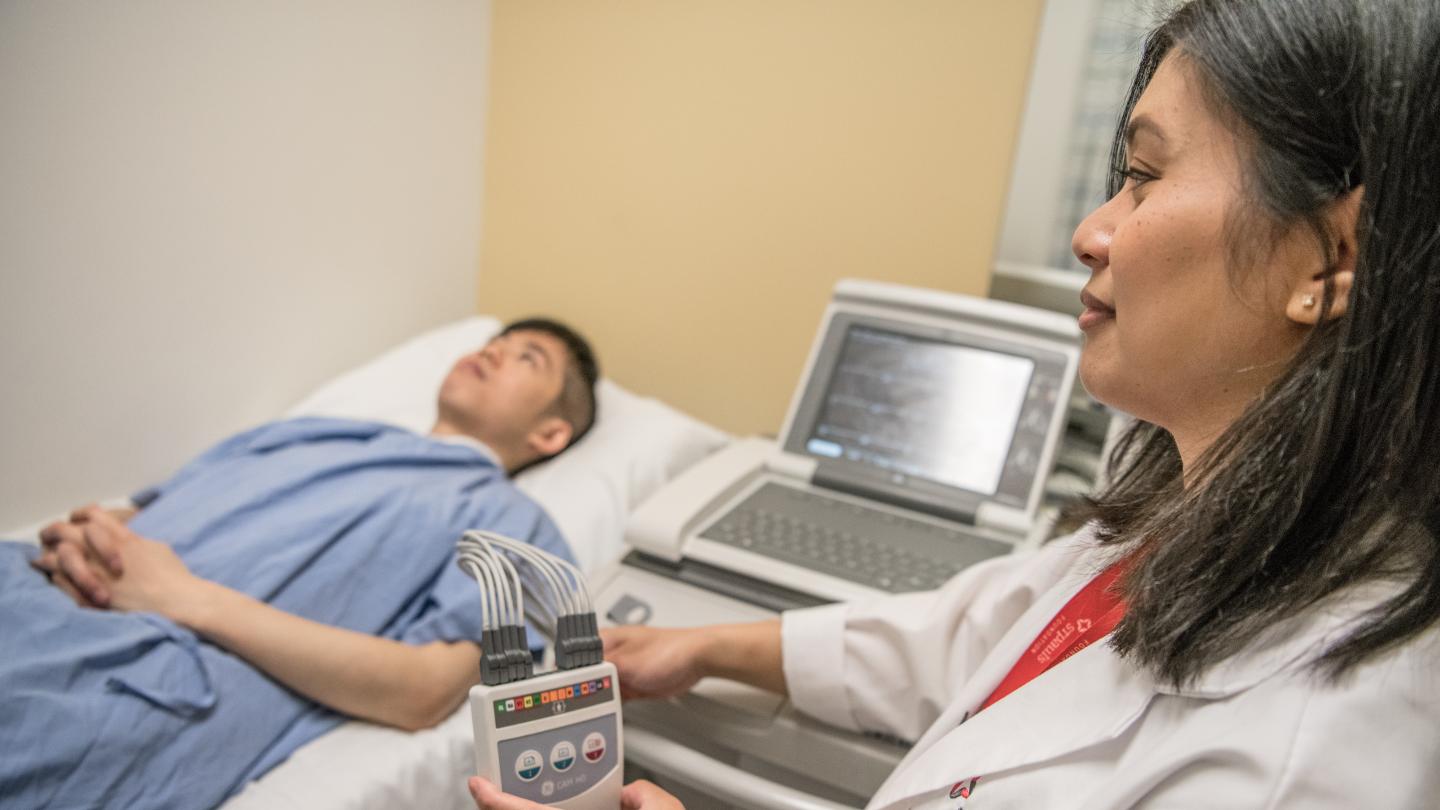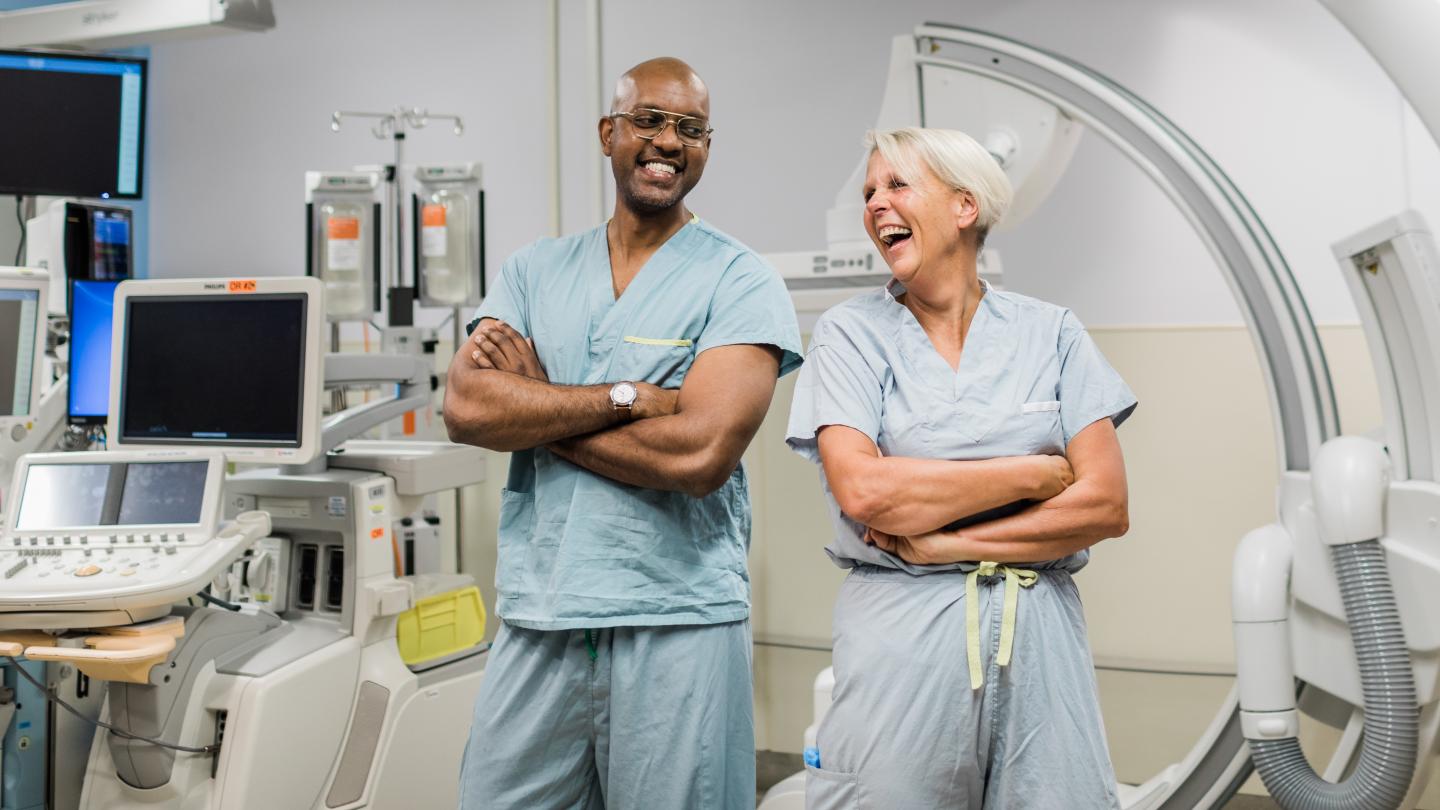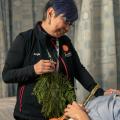Surgical valve replacement
An overview of a surgical valve replacement and how to prepare.
Overview
During heart valve surgery, surgeons repair or replace one or more valves.
Repair means that the valve is mended to help it work better. Replacement means your diseased valve is removed and a new valve is inserted in its place. Depending on your disease, the decision to repair or replace the valve may be decided before the surgery or your surgeon may decide only after the surgery has begun.
Your surgeon will talk with you about his or her plans for surgery and any other procedures that you may need. You will be asleep under general anesthetic and the surgery may take 3-6 hours. This surgery is well understood and has helped thousands of patients since valve replacement was first done in the 1960s.
Common tests & imaging
You may be asked to do one or more tests to prepare for this surgery. You can learn more about them here:

Preparing for the surgery
Planning ahead for your surgery and recovery after surgery can decrease the anxiety you and your family may experience throughout this process.
On the day of the surgery
Remember, that the time for your surgery is not firm. You may go a little earlier or a little later, depending on when the operating room is available or you may get rescheduled if an emergency needs to be done that day.
After you go to the operating room, your family may wait for you in the family waiting room right outside the Cardiac Surgery Intensive Care Unit (CSICU).
The CSICU is located on the 3rd floor, Providence Building, beside the operating room. If your family choose to wait at home or at a hotel, let the surgeon or CSICU know so the surgeon knows who, where, and how to contact your family when the surgery is finished.
During the surgery
Meet the team
Your medical care on the ward will be provided by a team that includes cardiac surgeons, nurse practitioners and cardiac surgery residents (medical students).

After the surgery
After your surgery you will stay in the cardiac surgery intensive care unit (CSICU) for a day or two, or longer if needed. Once you are ready for the ward you will be transferred to 5B which is located on the 5th floor of the Providence building. Typically, your discharge from hospital will occur 4 to 7 days after your surgery. You may have to stay longer depending on your recovery. You should start planning for both your discharge from hospital and your recovery at home at this time if you did not do any planning before you came to hospital.
Support for Indigenous Peoples
The Indigenous Wellness Liaison Team is here to support your health journey. Team members offer cultural support and healthcare advocacy. Learn more below or call them at 604-682-2344,62937 or email IWL@providencehealth.bc.ca.
Education & resources
Patient education
This is an essential booklet of information to help you on this heart surgery journey.

Please watch this video about the typical journey of a heart surgery patient at St. Paul’s Hospital.

This video offers information after you’ve been discharged from St. Paul’s Hospital.

Activity after surgery improves cardiovascular recovery, increases muscle strength and flexibility and promotes faster healing. Learn more from this important video.
Location
This procedure is done at St. Paul’s Hospital.
- If you have questions about your upcoming heart surgery, you should contact your heart surgeon’s office.
- If you don’t have a heart surgeon assigned to your case yet, then it is best to contact your cardiologist or family practitioner.
- If you are trying to reach a postoperative patient, call the hospital switchboard at 604-682-2344 and ask for the patient. They will either be in the CSISU or on the 5B ward.
